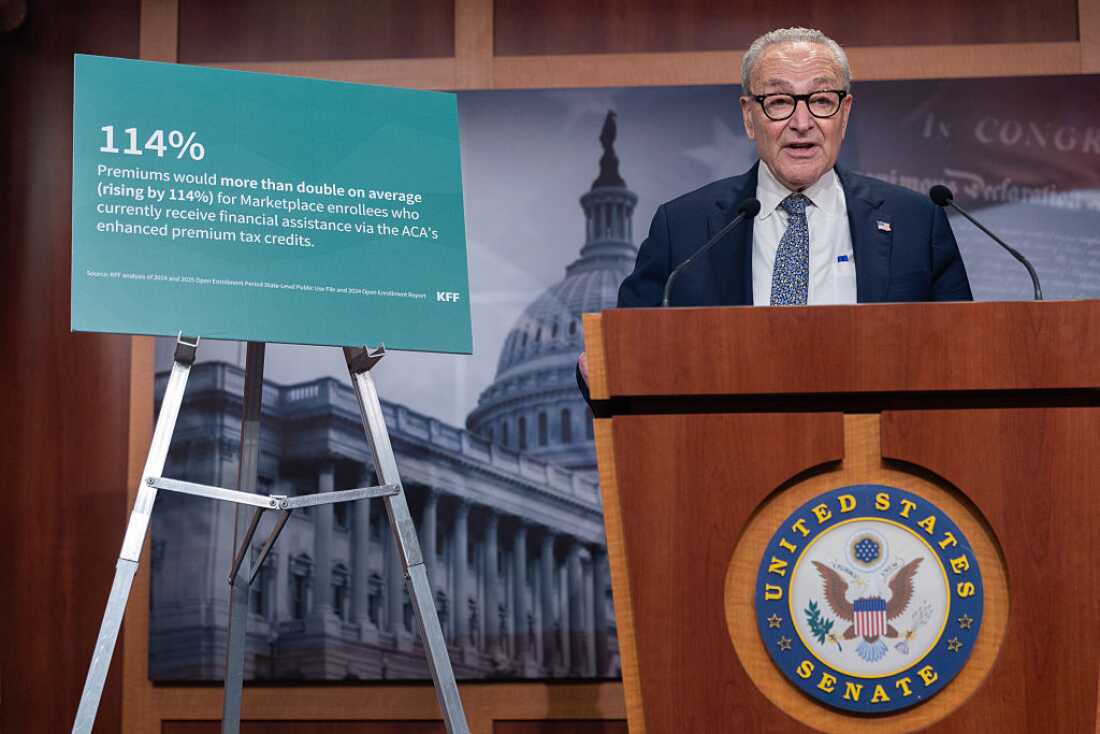
Senate Minority Leader Chuck Schumer, D-N.Y., at a press conference after failed votes to fund the government. (Nathan Posner/Anadolu/Getty Images)
What’s Happening?
A federal government shutdown was driven by a dispute over health policy—specifically, the cost of premiums for health care plans purchased on the Affordable Care Act (ACA, or “Obamacare”) marketplaces.
The Issue: Enhanced Tax Credits
- Since 2021, enhanced tax credits have made ACA plans more affordable for 24 million Americans.
- These credits are set to expire at the end of the year.
- Senate Democrats refused to vote for a Republican funding bill that did not extend these credits.
Why Do Enhanced Tax Credits Matter?
- They help people who don’t get insurance through work or public programs.
- Without an extension, average premium payments could increase by 114% (KFF analysis).
- The Congressional Budget Office estimates 4 million people could become uninsured if the credits expire (CBO report).
- Extending the credits would cost the government $350 billion over 10 years.
Background
- The ACA originally provided a sliding scale for premium support, but many still found coverage unaffordable.
- In 2021, Congress increased funding, making coverage more accessible and reducing the uninsured rate.
The Political Standoff
- Some Republicans argue the credits are too expensive; others are open to extension but not as part of the shutdown fight.
- Democrats argue the issue is urgent, as open enrollment and new rates are imminent.
Conclusion
The fight over ACA premium support is a central reason for the government shutdown, highlighting the ongoing political battles over health care in the U.S.
Sources:
